Marketing your workers’ compensation services in Illinois can be demanding from a compliance perspective. It requires navigating Illinois workers’ comp legal advertising rules that govern how lawyers communicate with the public. Whether you’re running web campaigns, placing ads, or building referral networks, you need to ensure your messaging and methods comply with the Illinois Rules of Professional Conduct.
Promoting your services responsibly helps build trust with potential clients and avoids disciplinary action. Illinois law, under the Illinois workers’ compensation legal framework, puts clear guidelines around what you can say, how you say it, and how you attract clients.
Let’s walk through the key principles you need to know about Illinois workers’ comp legal advertising rules and how to put them into practice.
Communicate Clearly and Truthfully
Illinois Rule 7.1 makes it clear that lawyers can’t make false or misleading statements about their services. That means no overpromising results, exaggerating your qualifications, or leaving out essential information. If you’re highlighting past victories, make sure you’re not setting unrealistic expectations for clients in different situations.
Illinois advertising rules also require that any promotion of legal services related to workers’ compensation must include a general description of benefit information, including pay scale and salary range, to ensure compliance and transparency.
A truthful statement might say, “We helped clients recover benefits after denied claims.” A misleading one would say, “We guarantee you’ll win your case,” because guarantees aren’t ethically allowed and can mislead clients.
Your marketing should be accurate, factual, and transparent. Stick to verifiable statements and avoid superlatives that can’t be substantiated.
Stick to What the Illinois Workers’ Compensation Commission Allows You to Claim
Illinois Rule 7.4 lets you communicate your areas of practice, but the state doesn’t recognize certifications or specialties unless they’re officially recognized, like patent law. That means you can say you handle workers’ compensation, but you can’t call yourself a “specialist” or “expert” unless you meet criteria beyond Illinois authorization.
If you’ve received awards or recognition from third-party organizations, you need to clarify that those are not state certifications. Without that clarification, you risk misleading potential clients. These clarifications don’t have to be extensive. That being said, avoid obfuscation through excessively small text or through text that has low contrast with your website colors (the Bar might find this problematic if prospective clients can’t be made reasonably aware of the clarification text).
Be Careful With Lead Generation and Referral Services
Illinois Rule 7.2 says you can pay reasonable marketing costs or use a lawyer referral service. But a for-profit lead service that advertises misleading claims or hides non-lawyer involvement raises ethical red flags.
In essence, Rule 7.2 prohibits fee-sharing with nonlawyers unless it’s part of a properly structured advertising agreement. If you’re working with a lead generation service, they must follow all legal advertising rules, and the relationship must be fully disclosed to the client.
You’re allowed to pay for marketing services, but you can’t pay someone just to recommend your firm unless that recommendation is clearly identified as advertising. Be wary of any vendor who promises leads without transparency or proof of compliance.
Here at Walker Advertising, we take great pains to ensure that our various sub-brands (Los Defensores and 1-800-THE-LAW2, for example) are legally compliant and meet all relevant ethical standards. It’s part of what has helped us to thrive for over four decades in this space. Firms know that they can be assured of compliant marketing when they work with our services.
Avoid Implying Recognition or State Approval You Don’t Have
Illinois doesn’t recognize legal specialties. That means phrases like “certified” or “board-certified” are off limits unless you’re recognized in a way that’s consistent with Illinois rules. The U.S. Supreme Court has ruled that truthful statements about certifications are protected, but Illinois standards still apply. Use caution, clarity, and accuracy if you reference any credentials.
Disclose Referral Relationships
If you work with networks of other professionals or services, Illinois Rule 7.2 requires you to disclose any referral relationship that might influence clients. The arrangement can’t control your professional judgment or create fee divisions that violate other rules.
Always make sure clients know if someone referring them gets a benefit, and make sure your independence remains intact.
Build Trust Through Transparency and Helpfulness
Marketing can be more than a way to attract clients. It’s also (potentially) a way to provide public service and build confidence. Offering clear information about workers’ comp law, the process for filing a workers’ compensation claim, or how to understand Illinois benefits helps injured workers make informed decisions. That approach ensures that your marketing communications remain ethically sound and also builds credibility with your audience.
When injured employees file a workers’ compensation claim, they may be eligible to receive benefits such as medical care, coverage for medical expenses, lost wages, and vocational rehabilitation. The injured workers’ benefit fund provides compensation to injured workers or their families when employers lack proper workers’ compensation insurance coverage. Legal assistance from an experienced attorney can be crucial in navigating workers’ compensation cases and securing proper legal representation to ensure all entitled benefits are received.
In essence, most marketing compliance issues are linked to “hard selling” or the obfuscation of various behind-the-scenes realities (i.e., referral arrangements, etc.). By focusing on soft-selling, such as the acquisition of clients through helpful information, perhaps through an article on a specific legal issue, you’re able to sidestep many of these issues.
Choose Providers Responsibly
If you work with marketing professionals or agencies, remember that you’re responsible for their actions under Illinois Rule 5.3. That means any materials they produce must meet ethical standards (this includes lead generation companies). You can’t endorse misleading ads, and you must ensure they follow confidentiality rules and avoid false claims.
Handle Client Information Properly
Advertising and marketing often collect client information. Illinois Rule 1.6 means you have to protect that privacy. If you use forms or chatbots on your site, make sure they’re secure. If you share data with referral services, make sure clients consent and confidentiality is protected.
Avoid Misleading Claims About Prior Results
Illinois lawyers are allowed to mention past case results, but you have to do it the right way. You can’t imply that those results will automatically apply to new clients. If you’ve helped a client win $250,000 in benefits, you can mention that, but you also need to add a disclaimer that results vary and depend on the facts of each case.
Avoid phrases like “we’ll fight to get you the same” or “we guarantee top-dollar settlements.” Even if those statements sound good in a marketing context, they can mislead the public and violate Rule 7.1.
Also, avoid cherry-picking only the most favorable outcomes without putting them in context. Make sure your messaging doesn’t leave out key facts that would make a viewer or reader misunderstand your firm’s typical results.
Be Cautious with Solicitation Practices
Illinois has specific rules around how and when you can contact prospective clients directly. Under Rule 7.3, lawyers are not allowed to solicit clients in person, over the phone, or by real-time electronic communication unless there’s a prior relationship.
That means you can’t text or call someone who just got injured on the job unless they’ve already contacted your firm or are an existing client. You can send letters, but even that has restrictions. If you use direct mail to contact workers’ comp claimants, you must include specific disclaimers and avoid coercive or misleading language.
Targeted solicitation can be effective, but you have to play by the rules. Before you send any outreach messages, make sure they don’t cross into prohibited territory. And always include a clear explanation that the communication is advertising material.
Make Your Website Compliant and Transparent
Your law firm’s website is often the first place a potential client will interact with your brand. That means it needs to reflect your professionalism and follow all applicable ethics rules. Start by reviewing all claims on your site and removing anything that could be considered misleading or unsubstantiated.
If you offer free consultations, make sure the conditions are clearly stated. If you list verdicts or settlements, include disclaimers that those results don’t guarantee future outcomes. Use plain language that injured workers can understand. Your website should feel welcoming, not confusing or overly promotional.
Also, make sure your privacy policy is easy to find and understand. If you’re collecting contact information through forms or chat tools, you must protect that data and avoid sharing it with third parties, including an insurance company in the context of workers’ compensation claims, unless you’ve received permission. Ethical marketing also means respecting the confidentiality of potential clients from the very first click.
Contact Walker Advertising for Help Growing Your Firm’s Client Base
Whether you’re a solo lawyer, or a small firm lawyer — or are part of a larger firm with plans for further expansion — it’s important to grow your client base in order to hit your revenue and client growth goals. Here at Walker Advertising, we can help. We operate a number of popular attorney networks (including our Los Defensores and 1-800-THE-LAW2 brands) through which firms are able to access leads for various legal claims.
The leads we acquire through our various online marketing efforts — from social media marketing to targeted web ads — have been pre-qualified by our team so that you aren’t hassled by a flood of leads that are simply not relevant or actionable for your purposes. By accessing these quality leads, you’ll be well-equipped to select the best ones to grow your firm business.
Best of all, you won’t have to spend your valuable time and effort on building out your online marketing efforts. Don’t worry about SEO optimization, trend analysis, or any other complex marketing issues. Instead, use us to access pre-qualified inbound leads, and focus your limited internal resources on providing quality representation to your existing (and new) client base.
Contact Walker Advertising today to connect to a member of our team who can explain how our legal networks can help your firm business thrive in this ever-changing digital marketing landscape.
We look forward to assisting you.






